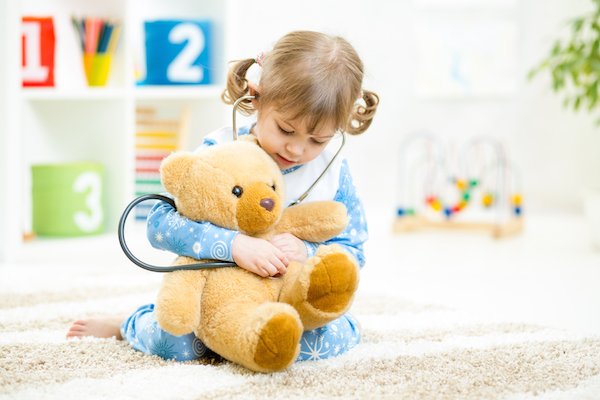TUESDAY, Oct. 12 (HealthDay News) — As many as one in five siblings of children with autism may have subtler problems with language and speech, according to new research involving nearly 3,000 children.
What isn’t yet clear is if these problems indicate a milder form of an autism spectrum disorder, or exactly what type of intervention, if any, might be needed to help these youngsters.
“Smaller studies have reported that in families with children with autism, many children who don’t have an autism diagnosis have had a language delay,” said the study’s lead author, Dr. John Constantino, professor of psychiatry and pediatrics at the Washington University School of Medicine in St. Louis, Mo. “When we looked at this huge sample, we saw the same thing — about 20 percent of children presumed to be non-autistic had language delays and autistic qualities in their speech. In the general population, the prevalence of these traits is only about 7 percent,” he said.
Results of the study were published in the November issue of the American Journal of Psychiatry.
Although many siblings of children with autism are completely unaffected by the disorder, the disorder is far more likely to strike the brother or sister of someone with autism than someone without an affected sibling. In fact, the risk of a sibling of someone with autism having the disorder is 22-fold higher, according to background information in the article.
What the current study sought to further tease out was whether or not certain autistic traits — conditions that might not trigger a diagnosis of autism, but nonetheless could still cause problems — might be more prevalent in siblings of children with an autism diagnosis.
The researchers used data from an American, Internet-based family register compiled by the Interactive Autism Network, which includes more than 35,000 participants. In addition to providing information about the children in their families who had been diagnosed with autism, some parents also completed a Social Responsiveness Scale questionnaire on each of the children living in their home between the ages of 4 and 18 years old.
A total of 1,235 families, including almost 3,000 children, provided all of the information necessary for the current study.
The study found that 10.9 percent of families had more than one child with an autism diagnosis, and an additional 20 percent had children who weren’t diagnosed with autism, but who had language delays. Half of the group with language delays also had autistic qualities in their speech patterns.
The study also found that girls were more likely to have these subtle traits of potential autism spectrum disorder. They suggest that if these were taken into account, the current notion that there is a wide preponderance of boys versus girls diagnosed with an autism spectrum disorder might narrow to as low as three boys for every two girls affected.
This study’s findings also provide further evidence that autism spectrum disorders have, at least in part, a genetic basis, according to Constantino.
Scott Hunter, director of pediatric neuropsychology at the University of Chicago Medical Center, agreed that this study adds to the evidence suggesting that genes are one likely cause of autism spectrum disorders.
Because parents completed the questionnaires, this study wasn’t able to determine if the siblings were experiencing a mild form of autism, or if these were isolated language delays.
Both experts thought that it would be a good idea for families with one autistic child to have their other children screened, and Hunter said that you should definitely seek a thorough evaluation if you notice any trouble in language acquisition in children who don’t have autism.
“If you are a parent of a child with autism, it’s probably important to talk to your pediatrician about your other child’s development,” said Hunter.
“The likelihood of other children in the family potentially being affected by a language or social impairment is relatively high, so keep an appropriate level of vigilance. These less-severe symptoms may nevertheless be substantially impairing in school and friendships,” explained Constantino.
Both experts agreed that if intervention is necessary, treatment that’s started sooner generally leads to better outcomes. But, noted Hunter, “It’s never too late to intervene.”
More information
To learn more about autism, visit the U.S. National Institute of Child Health and Human Development.

